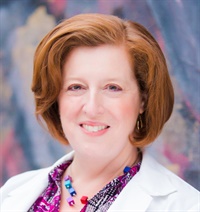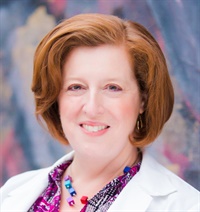Decoding Compulsive Sexual Behavior Disorder: Medical Insights and Therapeutic Strategies
Credit Available - See CEs/Contact Hours tab below.
Total Credits: 2 NYSED LMHC CEs/Contact Hours, 2 NYSED LMFT CEs/Contact Hours, 2 NYSED LCAT CEs/Contact Hours, 2 NYSED PSY CEs/Contact Hours, 2 ASWB ACE approved continuing education, 2 UBSW - NYS OASAS, 2 AASECT Sex Therapy CKA
- Average Rating:
- 33
- Categories:
- Professional Development | Couples and Family Therapy | Families and Couples
- Trainers:
- Pebble Kranz, MD, FECSM, IF, MSCP | Daniel Rosen, LCSW-R, CST, CSTS
- Course Levels:
- Beginning
- Duration:
- 1 Hour 54 Minutes
- Format:
- Audio and Video
- Original Recording Date:
- Sep 19, 2025
- Format:
- Self-Study
Tags: ASWB Short Self-Study
Description
Recorded webinar.
Description: This training is designed for mental health professionals seeking to deepen their understanding of Compulsive Sexual Behavior Disorder (CSBD) from a medical and psychotherapeutic perspective. Participants will explore the physiologic underpinnings and contributing factors of CSBD, including differential diagnoses, the impact of neurologic and genital diseases, and the effects of various medications and substances. The session will also address the ongoing debates surrounding the classification and diagnostic criteria for CSBD, alongside the challenges of distinguishing between normative behavior and pathology. Attendees will learn about the interplay between emotion dysregulation, moral incongruence, and overlapping mental health conditions such as anxiety and depression. Attendees will develop competence in best counseling practices for addressing this newer diagnosis. Importantly, the training will highlight when to refer clients to medical providers for evaluation of physiological components impacting sexual behavior, ensuring a comprehensive approach to assessment and treatment.
Learning Objectives:
- Explain the differential diagnoses associated with Compulsive Sexual Behavior Disorder, including the impact of neurologic and genital diseases.
- Identify potential contributing factors, such as medications and substances, that influence sexual behavior and function.
- Analyze the role of emotion dysregulation and moral incongruence in the manifestation of CSBD and discuss the implications for treatment.
- Recognize the signs that warrant referral to a medical provider for the evaluation of physiological components.
- Develop a holistic approach to diagnosing and treating CSBD that prioritizes understanding the individual’s experiences, comorbid conditions, and societal attitudes toward sexuality.
Research:
- Bőthe, B., Potenza, M. N., Griffiths, M. D., Kraus, S. W., Klein, V., Fuss, J., & Demetrovics, Z. (2020). The development of the Compulsive Sexual Behavior Disorder Scale (CSBD-19): An ICD-11 based screening measure across three languages. Journal of Behavioral Addictions, 9(2), 247–258. https://doi.org/10.1556/2006.2020.00034
- Briken, P. (2020). An integrated model to assess and treat compulsive sexual behaviour disorder. Nature Reviews Urology, 17(7), 391–406. https://doi.org/10.1038/s41585-020-0343-7
- Briken, P., Bőthe, B., Carvalho, J., Coleman, E., Giraldi, A., Kraus, S. W., Lew-Starowicz, M., & Pfaus, J. G. (2024). Assessment and treatment of compulsive sexual behavior disorder: A sexual medicine perspective. Sexual Medicine Reviews, qeae014. https://doi.org/10.1093/sxmrev/qeae014
- Goldstein, I., Komisaruk, B. R., Pukall, C. F., Kim, N. N., Goldstein, A. T., Goldstein, S. W., Hartzell-Cushanick, R., Kellogg-Spadt, S., Kim, C. W., Jackowich, R. A., Parish, S. J., Patterson, A., Peters, K. M., & Pfaus, J. G. (2021). International Society for the Study of Women’s Sexual Health (ISSWSH) Review of Epidemiology and Pathophysiology, and a Consensus Nomenclature and Process of Care for the Management of Persistent Genital Arousal Disorder/Genito-Pelvic Dysesthesia (PGAD/GPD). The Journal of Sexual Medicine, 18(4), 665–697. https://doi.org/10.1016/j.jsxm.2021.01.172
- Hevesi, K., Tamas, S., & Rowland, D. L. (2023). Why Men Masturbate: Reasons and Correlates in Men with and without Sexual Dysfunction. Journal of Sex & Marital Therapy, 1–15. https://doi.org/10.1080/0092623X.2023.2204088
- Lew-Starowicz, M., & Coleman, E. (2022). Mental and sexual health perspectives of the International Classification of Diseases (ICD-11) Compulsive Sexual Behavior Disorder. Journal of Behavioral Addictions, 11(2), 226–229. https://doi.org/10.1556/2006.2022.00032
- Lew-Starowicz, M., Lewczuk, K., Nowakowska, I., Kraus, S., & Gola, M. (2020). Compulsive Sexual Behavior and Dysregulation of Emotion. Sexual Medicine Reviews, 8(2), 191–205. https://doi.org/10.1016/j.sxmr.2019.10.003
Target Audience: social workers, mental health practitioners, creative arts therapists, marriage and facility therapists, psychologists, addiction professionals, case managers, psychiatric nurse practitioners and other interested individuals.
Customer ServiceWe are happy to respond to any concerns or questions you may have. Please contact us at by email at sw-ce@buffalo.edu or by phone at 716-829-5841.
ADA Accommodations: If you require any support for your ADA needs in the United States, please contact us by email at least 3 weeks prior to the event by email at sw-ce@buffalo.edu or by phone at 716-829-5841.
CEs/Contact Hours
University at Buffalo School of Social Work, Office of Continuing Education is recognized by the New York State Education Department's State Board for Mental Health Practitioners as an approved provider of continuing education for licensed mental health counselors #MHC-0008. Continuing education contact hours: 2 Live Online
University at Buffalo School of Social Work, Office of Continuing Education is recognized by the New York State Education Department's State Board for Mental Health Practitioners as an approved provider of continuing education for licensed marriage and family therapists #MFT-0007. Continuing education contact hours: 2 Live Online
University at Buffalo School of Social Work, Office of Continuing Education is recognized by the New York State Education Department's State Board for Mental Health Practitioners as an approved provider of continuing education for licensed creative arts therapists #CAT-0003. Continuing education contact hours: 2 Live Online
University at Buffalo School of Social Work, Office of Continuing Education is recognized by the New York State Education Department's State Board for Psychology as an approved provider of continuing education for licensed psychologists #PSY-0062. Continuing education contact hours: 2 Live Online
University at Buffalo School of Social Work, Office of Continuing Education, #1773, is approved to offer social work continuing education by the Association of Social Work Boards (ASWB) Approved Continuing Education (ACE) program. Organizations, not individual courses, are approved as ACE providers. State and provincial regulatory boards have the final authority to determine whether an individual course may be accepted for continuing education credit. University at Buffalo School of Social Work, Office of Continuing Education maintains responsibility for this course. ACE provider approval period: 02/23/2023 - 02/23/2026. Social workers completing this course receive 2 continuing education credits.
NYS OASAS Provider #0045: 2 hours for CPP & CPS Initial Hours in Section 1; CASAC, CPP & CPS Renewal Hours.
Rochester Center for Sexual Wellness is approved to offer continuing education credits by the American Association of Sexuality Educators, Counselors and Therapists (AASECT). Organizations, not individual courses, are approved as AASECT providers. AASECT provider approval period: 07/01/2024 - 06/30/2026. This program meets the requirements of the American Association of Sexuality Educators, Counselors and Therapists (AASECT) and is approved for 2 CE credits. These CE credits may be applied toward AASECT certification and renewal of certification. Completion of this program does not ensure or guarantee AASECT certification. For further information, please contact certification@aasect.org
AASECT Sex Therapy, Counseling, or Education CKA: H, I, L, C H. Health/medical factors influencing sexuality • Covers physiologic underpinnings of CSBD, neurologic/genital diseases, medication/substance impacts, and referrals to medical providers. I. Range of sexual functioning and behavior • Addresses debates about CSBD classification, diagnostic criteria, and distinguishing normative vs. pathological behavior. L. Substance use/abuse and sexuality • Includes analysis of medications and substanc
Handouts
| SS Agenda CSBD (61.3 KB) | Available after Purchase | ||
| CSBD Powerpoint 3 per page (3.70 MB) | Available after Purchase | ||
| CSBD Powerpoint 2 per page (4.31 MB) | Available after Purchase | ||
| CSBD (0.11 MB) | Available after Purchase | ||
| References Compulsive Sexual Behavior Disorder (0.16 MB) | Available after Purchase | ||
Trainer

Pebble Kranz, MD, FECSM, IF, MSCP Related Seminars and Products
Pebble Kranz, MD, FECSM, IF, MSCP, a family physician, menopause medicine, and sexual medicine specialist, graduated from Brown University's Medical School in 2007 and completed residency with the University of Rochester Family Medicine Residency Program in 2011 with a focus on psychosocial aspects of primary care. After serving as residency faculty and a primary care doctor for the University of Rochester, Dr. Kranz pursued additional training in sexual, menopause, and gender medicine, earning fellowships from the European Committee on Sexual Medicine, the International Society for the Study of Women's Sexual Health, certification from the Menopause Society as an expert menopause medicine practitioner, as well as status as an Advanced Practitioner in Optimal Sexual Experiences Group Couples Therapy. She serves on the board of the Scientific Network on Female Sexual Health and Cancer and is a consultant to the University of Rochester’s Pluta Breast Center’s Sexual Wellness Clinic. She is founder and medical director for The Rochester Center for Sexual Wellness, providing comprehensive care for sexual, relational, and gender concerns in Western New York. Dr. Kranz is committed to educating healthcare professionals at all levels and the community on medical care for sexual concerns.

Daniel Rosen, LCSW-R, CST, CSTS Related Seminars and Products
Dan Rosen, LCSW-R, CST, CSTS, a clinical social worker, sex therapist, and sex therapy supervisor certified by American Association of Sexuality Educators, Counselors and Therapists (AASECT), graduate from NYU’s School of Social Work in 1991. Since then, Mr. Rosen has worked in a variety of mental health facilities till transitioning fully to private practice in 2001 and then merging his practice into the Rochester Center for Sexual Wellness (RCSW) in 2017, the year it was founded by Dr. Pebble Kranz, MD. Mr. Rosen has studied extensively in the field of sex therapy and group therapy. He is an Advanced Practitioner in Optimal Sexual Experiences Group Couples Therapy and a student of Modern Analysis through the Center for Group Studies. He is on the Ethics committee for the Society for the Advancement of Sexual Health and chaired the Ethics Advisory Committee for AASECT 2016-2018. Mr. Rosen serves as the Director of Behavioral Health for RCSW, providing comprehensive care for sexual, relational, and gender concerns in Western New York and supervision of the clinical team and interns. Mr. Rosen supervises candidates from across the country for certification by AASECT; he has been educating people in university and in post graduate training in the field of sex therapy since 2014.
Agenda
Definitions and Controversies (15m)
A Sexologically Informed Clinician is Critical (15m)
Mental Health Differential (10m)
Medical Differential (15m)
Break and Q&A (5m)
Biopsychosocial Case Formulation (25m)
Treatment Principles (30m)
Self-Study Equipment Requirements
Required Hardware
- A computer (desktop/laptop) or mobile device (smartphone/tablet).
- Speakers/headphones/earbuds
Internet Connection
- A stable Internet connection of 56K or greater is required. (However, please note that a 56K connection may degrade the quality of your experience.)
Any questions about these requirements or other technical questions can be directed to sw-ce@buffalo.edu.
Self-Study Course Access
Upon successful registration of the course, including receipt of payment, you will be able to access the course materials.
How do I test my system / access the online training?
To access the program, please log into your account. Click on the Launch Viewer button next to your program title.
How do I access the course materials
To download course materials, log into your account. Under the seminar name click on the Handouts button.
Completion Requirements
No partial credit is given for partial attendance.
Self-Study Completion Requirements
In order to receive a certificate of completion for this course participants must complete the following.
Please note all requirements can be found in your UBCE21 portal
- Watch the video(s) in it's entirety.
- After the training, take and pass the quiz with a score of 80% or higher. Participants have three chances to pass the quiz. You can access the quiz by clicking on the "Evaluation and Certificate" button for this course.
- After the training, complete the evaluation by clicking on the "Evaluation and Certificate" button for this course.
The certificate of completion will be immediately generated in your account upon completion of all course requirements. Certificates may be downloaded, printed, or left in your account.
Self-Study Cancellation Policy
Self-Study Courses: Participants have up to 72 hours from purchase to contact the Office of Continuing Education by email and request a refund.



